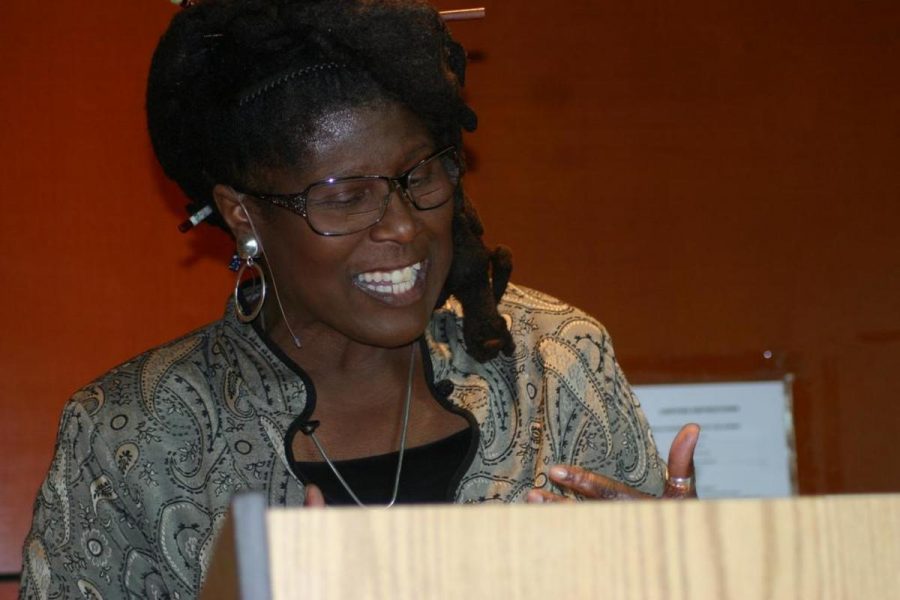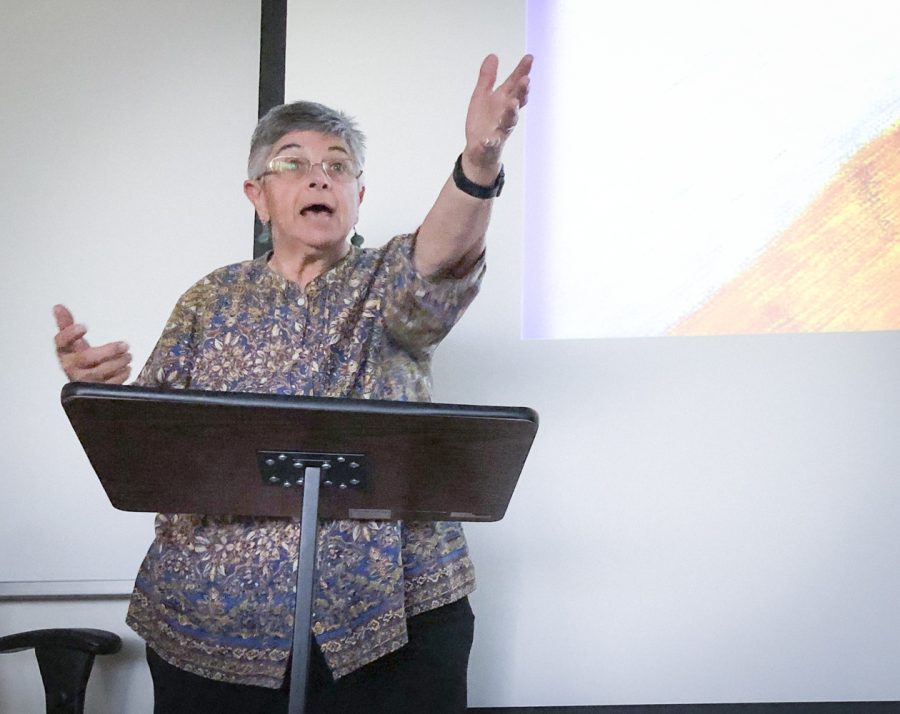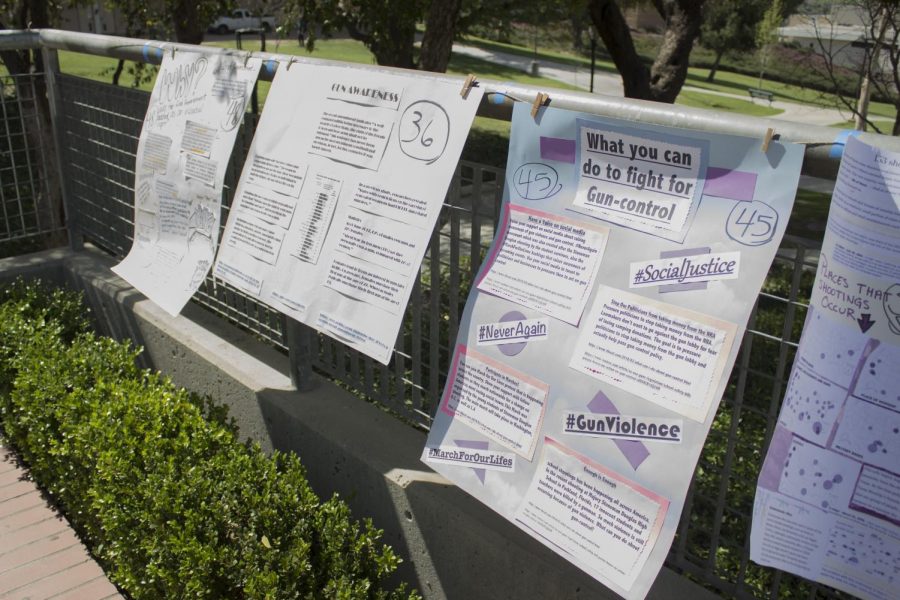An award-winning poet captivates the audience through the power of spoken word, as she revisits the continuing evolution of racism as a social issue throughout American history.
Poet and author Wanda Coleman helped celebrate African American History Month as she performed and interpreted her writings to an audience consisting of Oxnard College students, faculty and community members.
“There’s nothing more exhilarating or liberating than self-expression,” said Coleman. “The arts help you see the value in being human.”
The lecture was part of the Oxnard College Literature, Arts and Lecture Series titled, “Poems that Rehumanize and Dehumanize,” held on Feb. 16, in which Coleman enacted various poems from her published works that carried an array of influence.
Coleman’s honors include an Emmy Award, the Lenore Marshall Poetry Prize, National Endowment for the Arts Fellowship, Guggenheim Foundation Fellowship and was also a finalist for the National Book Award.
During the lecture, Coleman illustrated a portrait of her poetry with her voice and used tonality and precise pronunciation to evoke emotion. She also commented on what gives her the most joy from writing.
“When I look back at a poem and say, ‘Did I write that?’, that’s the best feeling,” said Coleman. “Sometimes my poems are so good to me, it’s as though someone else wrote it.”
Many audience members responded positively to Coleman’s read and some sighed and moaned as they sat and listened.
Andrew Sandahl, an 18-year-old English major, is an avid musician who arrived at the lecture hoping to be moved by poetry.
“There is so much power behind words,” said Sandahl. “I have read poetry before, but never been moved by it and I was kind of hoping to the feel the poems here. Just hearing Wanda perform her poems was just phenomenal.”
According to Coleman, poetry is demanding and it is a task master that makes you work.
She also tells of the importance that writing, expression and free thinking should be to students.
“It’s the ultimate,” said Coleman. “The creative arts have undergone so many disfavors in the educational system and it is considered a luxury. I think it’s the opposite, I think it’s a necessity.”
Poet Marsha DeLaO, was in attendance and expressed that Coleman’s performances are always extremely memorable and inspiring.
“I get tremendous inspiration, especially from Wanda Coleman because she absolutely enlivens those words, she brings them to life,” said DeLaO. “She’s got a big voice and she’s operation on African-American traditions, so on the page the words lie flat, but it’s up to me and my imagination to put the feeling and culture into them. I get that directly from her.”
Rhonda Lillie, a 41-year-old psychology major, is a poet and listening to Coleman inspired her to try to write poetry differently.
“Wanda was being the poetry, acting the poetry, becoming the poetry,” said Lillie. “Usually I just read poetry. Now I can sort of hear her voice. So, when I write poetry, I want them to hear what the poet wants you to hear.”
Lillie also explains that students should take advantage of lectures like this, since people usually pay for presentations of this magnitude and they are free at the OC campus.
Shelley Savren, English professor and coordinator for this event, wanted to expose the students at OC to Coleman and the power she delivers through her reads and believes she was a great pick for African American History Month.
“Spoken word is a different kind of power,” said Savren. “Poetry started as an oral tradition and it was handed down that way. Surely when you read a poem out loud, you can hear the rhythm.”
Savren also clarifies that poetry is so concerned with sound, that reading it out loud brings it to life in a whole other way.






